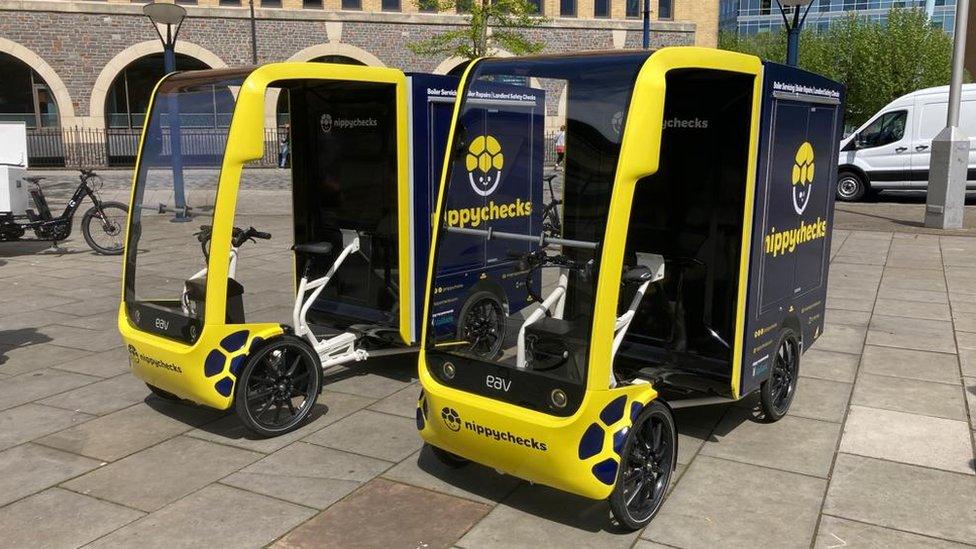Bristol carbon emissions: Electric bus fleet to be introduced
- Published
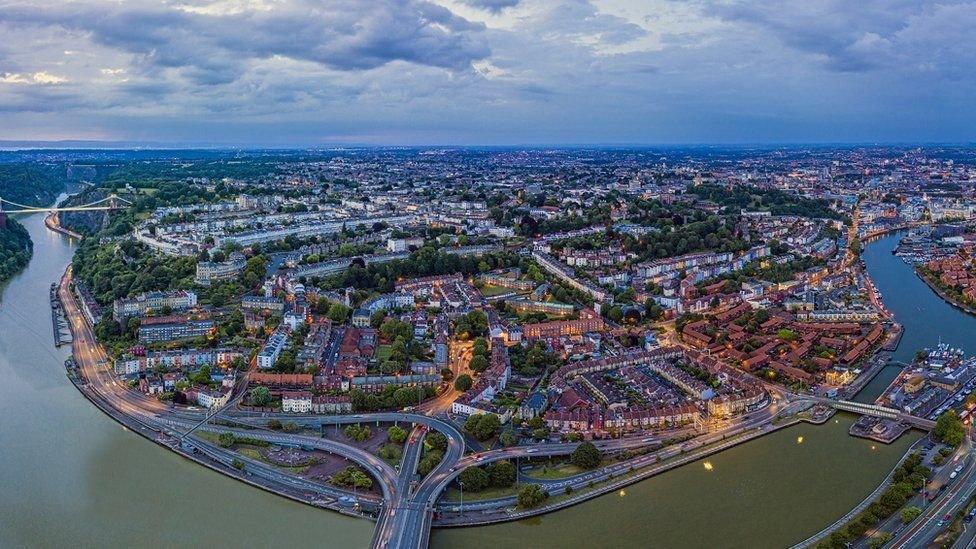
A 'zero emission zone' could be created in Bristol city centre
A city transport network is to be 'decarbonised', partly by introducing 250 electric buses and 1,000 cycle racks,
Bristol City Council is aiming to get the city to net zero carbon emissions by 2030 to tackle climate change.
A big part of that push will be changing how people move around the city.
Bristol City Council's cabinet is expected to accept a government grant of £500,000 towards its plans.
The money will be used to commission several studies looking at how Bristol can speed up plans to decarbonise the city's transport network, reports the Local Democracy Reporting Service (LDRS).
According to the latest government data, a third of Bristol's carbon emissions come from vehicles.
Transport emissions in Bristol have reduced by less than 10% over the past decade, much slower than other sectors like industry, commercial and domestic energy use.
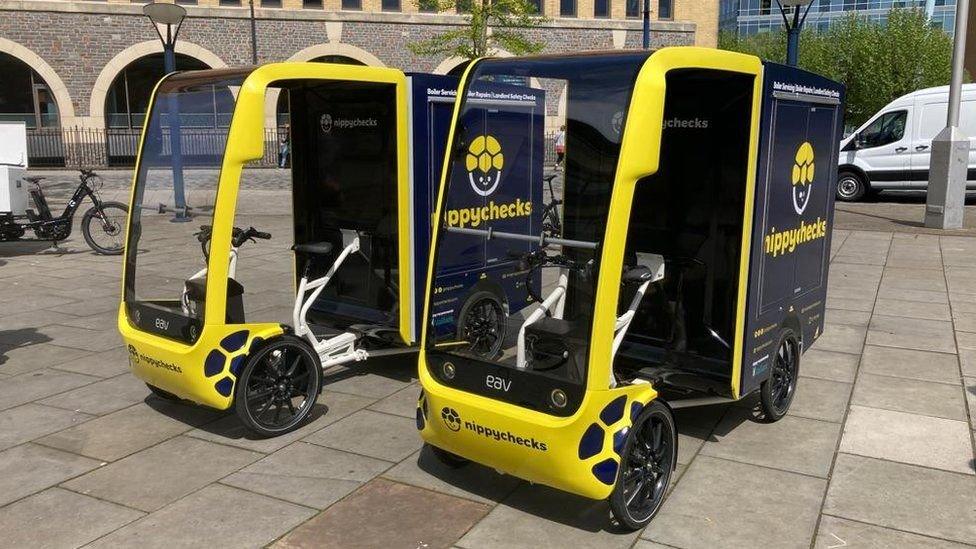
Estimates suggest e-cargo bikes deliver about 60% faster than diesel vans and cut carbon emissions by 90%
A third of the £500,000 grant will be spent studying how to decarbonise freight, featuring the introduction of freight consolidation hubs, one of which the council is already backing.
The hubs could see deliveries initially sent to buildings outside the city centre, with the last mile of the delivery then made on a cargo bike or a small electric van.
Green logistics service Zedify operates a hub in St Jude's, and uses cargo bikes to deliver to businesses across the city centre.
The company received a £100,000 grant from the council last year, and similar 'last mile delivery' services could soon be rolled out across the city.
Council bosses hope to have installed 1,000 cycle hangars and introduced 250 electric buses to Bristol by 2027.
A 'zero emission zone' could be created in the city centre, covering the Old City, Broadmead, Cabot and Queen Square.

Follow BBC West on Facebook, external, Twitter, external and Instagram, external. Send your story ideas to: bristol@bbc.co.uk , external
Related topics
- Published31 May 2022
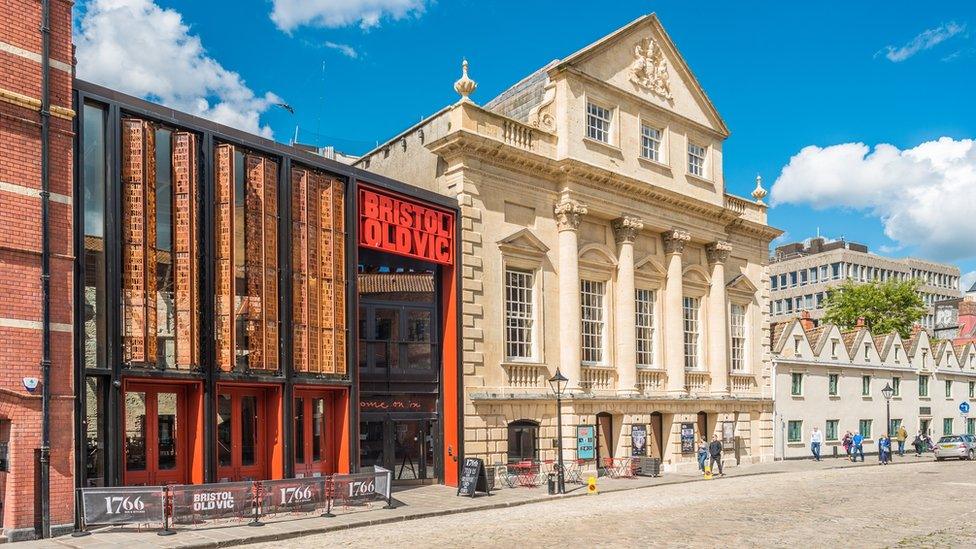
- Published14 April 2022
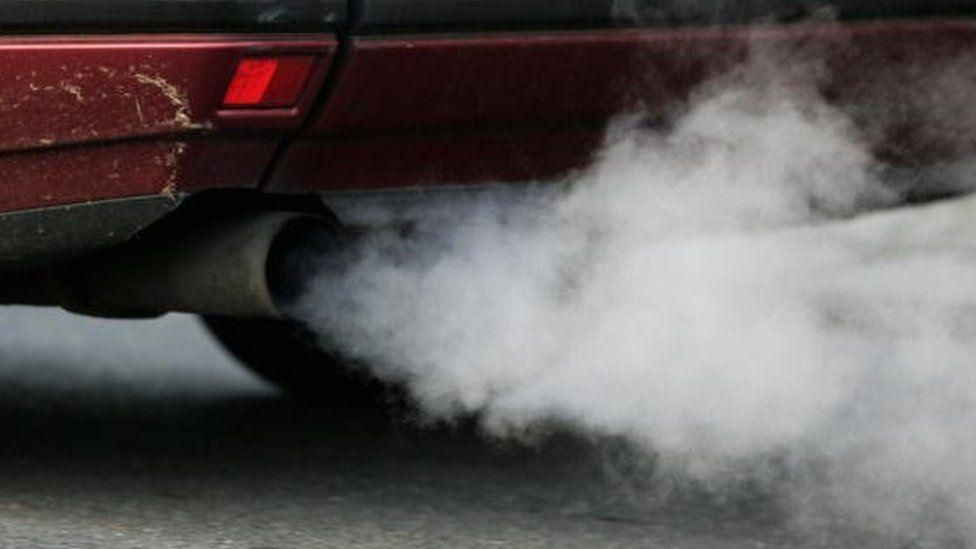
- Published4 May 2022
